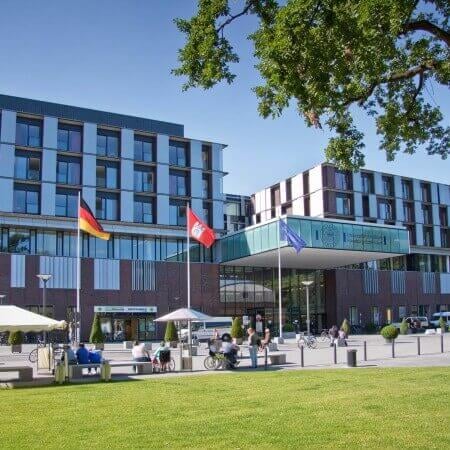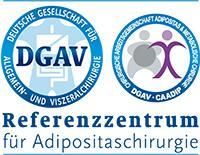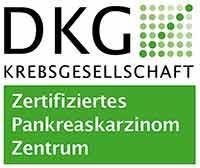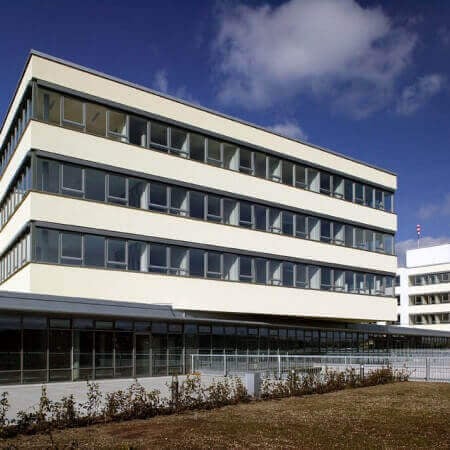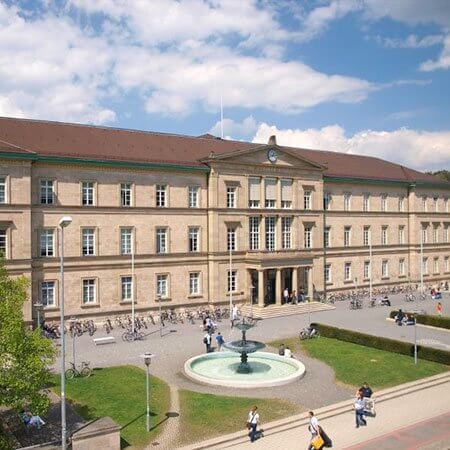Accounting for only 1% of all cases of oncology, thyroid cancer is considered rare. It is therefore important to remember that if a person has a tumor or nodule in the neck area, it does not necessarily indicate thyroid cancer. Only 1 out of 20 thyroid neoplasms contains malignant cells. If this type of tumor is detected relatively early and is actively treated, it has a fairly favorable prognosis. However, some people still have to face the thyroid cancer reality, so it’s important to know what can be done in terms of thyroid cancer treatment.
Content
- What are the signs of thyroid cancer?
- Treatment tactics
- Surgical treatment
- Alternatives to surgical treatment
- Treatment of thyroid cancer stage 4
- Innovative treatments
- Rehabilitation
- The prognosis for thyroid cancer treatment in Germany
- The cost of treatment
- Treatment with Booking Health
What are the signs of thyroid cancer?
In its onset, thyroid cancer most often does not cause any symptoms. Sometimes it can manifest as a swelled front of the neck. The lymph nodes might be increased in volume, but painless.
Often thyroid cancer manifestations become significant only after the process has reached an advanced stage. The following symptoms are often noticed:
- Unexplained voice hoarseness that persists several weeks
- Difficulty swallowing
- Neck pain
Sometimes cancer can also cause changes in hormone production, e.g. the increased level of free T3 and free T4.
Anyhow, if patients feel discomfort in the neck area, they should undergo diagnostic examinations as soon as possible.
Treatment tactics
As with other cancers, not only the histological form of the tumor and its sensitivity to conservative means of treatment, but also the age of patients with thyroid cancer, and the general state of health of patients are taken into consideration when choosing treatment.
The decisive factor in the choice of treatment tactics is the stage of thyroid cancer. A general rule is: the earlier the pathology is detected, the more sparing and not invasive methods are used.
For this reason, patients from all over the world come to German hospitals to undergo check-ups, which allows the detection of a malignant process at such a stage of development, when complete healing and return to a normal pace of life are still possible.
Regular examination of the thyroid gland in order to prevent the development of a malignant tumor is indicated if patients:
- Have any kind of thyroid dysfunction (including the hormonal imbalance and autoimmune diseases)
- Have hereditary predisposition (i.e. family history of thyroid cancer)
- Underwent irradiation of the head and neck
- Are living in an area with an increased level of industrial chemicals in the environment
Thyroid cancer is mostly caused by genetic factors and radiation exposure.
Thyroid cancer treatment includes thyroidectomy, radioactive iodine treatment, chemotherapy and targeted therapies, hormone suppression therapy.
Price for thyroidectomy starts at €5,480. Cost of radioiodine therapy for stage 4 cancer starts at €3,973. You can find other prices on our website.
The best hospitals for treatment of thyroid tumors in Germany are:
- University Hospital Frankfurt am Main
- University Hospital Rechts der Isar Munich
- University Hospital of Ludwig Maximilian University of Munich
- Clinic of Advanced Biological Medicine Frankfurt am Main
- Helios Hospital Berlin-Buch
Surgical treatment
Radical surgical intervention is the main method of thyroid cancer treatment, and the volume of surgery is determined by the following criteria:
- The stage of the disease
- The histological type of the tumor, which determines its potential or actual aggressiveness
- The age and general condition of patients
In cases where the risk of recurrence is low, doctors in German hospitals try to preserve as much of the thyroid gland as possible during surgery. However, it is not difficult to compensate the function of the thyroid gland with lifelong therapy, so in cases where the preservation of the patient's life is at stake, complete surgical removal of the organ should not be rejected.
At advanced stages of the disease, as well as in cases of low-differentiated thyroid cancer, oncologists in German hospitals are forced to resort to a combination of treatments, supplementing surgical intervention with conservative anti-tumor therapy.
The advantages of surgery in German hospitals include the following:
- The use of sparing techniques, which allow to conduct surgical interventions in elderly patients and provide the shorter recovery period
- Wide use of robotic technologies, that guarantee a high precision of the operation
- Neuromonitoring is used to minimize the risk of recurrent laryngeal nerves injury and common complications
- Optimal patient care and a high level of rehabilitation medicine, allowing even the most diseased patients to return to a full life
Alternatives to surgical treatment
For thyroid cancer, radioisotope therapy can be used as an alternative to surgery. Radioactive iodine can selectively accumulate in cancer cells, irreversibly destroying tumor tissue.
This method has been widely used for more than half a century and has practically no side effects because radioactive iodine decays quickly and healthy tissues aren’t affected during treatment. Iodine treatment is also prescribed after surgical intervention in order to destroy tumor metastases and/or to prevent recurrences in aggressive types of thyroid cancer.
Less frequently, chemotherapy and radiotherapy are used in German hospitals to control thyroid cancer. Such therapy is usually prescribed for neoplasms that do not accumulate iodine, and for large neoplasms also.
Treatment of thyroid cancer stage 4
Thyroid cancer stage 4 spreads beyond the neck region, usually to the lungs and bones, or deeply invades the surrounding tissues, including major blood vessels.
Surgical treatment of thyroid cancer stage 4 usually consists of a total thyroid resection or thyroidectomy, and central lymph dissection. If thyroid cancer stage 4 has spread far beyond the thyroid capsule, doctors conduct a modified cervical dissection. Iodine therapy is prescribed after total thyroidectomy in order to destroy undetected tumor cells.
External radiation therapy is recommended for some patients with stage 4 thyroid cancer. For patients with differentiated thyroid cancer stage 4, the cells of which do not accumulate iodine, chemotherapy in a clinical trial setting might be an option.
After the radical treatment of thyroid cancer stage 4, patients should also receive hormone therapy with a dose of thyroid medicine sufficient to suppress the levels of TSH (thyroid-stimulating hormone). This helps prevent the relapse of the disease.
Innovative treatments
In German hospitals, doctors are actively practicing completely new approaches in medicine, which can affect the chances for recovery of patients with thyroid carcinoma, lower the risk of relapse and make treatment safer. Progressive approaches include low-traumatic endoscopic surgeries, robot-assisted surgical interventions, measures that help overcome resistance to iodine therapy, and targeted treatment.
After a traditional thyroidectomy, a scar is left, which is a noticeable cosmetic defect. An endoscopic technique doesn’t have any similar consequences. During such surgery, the doctor makes only small incisions and inserts microsurgical instruments through them. This therapeutic technique for thyroid cancer is more sparing and is followed by a shorter and easier post-operative period. Endoscopic surgery using robotic technology can also be performed for removal of the organ affected by cancer. During such a surgery, all cuts are made by the precise manipulators of the robotic system, under the control of a surgeon.
Sometimes a thyroid carcinoma is resistant to radioiodine therapy. German medicine has learned to cope with this problem by using new medications that target specific cells. As a result, the malignant tumor learns to accumulate radioiodine, and it becomes less resistant to the subsequent therapy.
The conventional chemotherapeutic drugs for thyroid cancer often can’t lead to the desired results. But new targeted drugs that act on atypical cells are now being developed. Also, German oncology centers are constantly working on new chemotherapy regimens that help extend the life of those with extremely aggressive thyroid cancer.
Rehabilitation
The thyroid gland is an organ that affects the functioning of almost all the organs and systems of the human body, so rehabilitation is required after any type of thyroid cancer treatment.
In German hospitals, patients who underwent surgical removal of a malignant tumor of the thyroid gland receive individual hormone replacement therapy, which will allow living a full life without any restrictions.
Additionally, a set of rehabilitation measures is prescribed, which should consolidate the results achieved and speed up the recovery.
The prognosis for thyroid cancer treatment in Germany
The prognosis for thyroid cancer treatment in Germany is favorable in most cases. The success rates of treating malignant thyroid tumors in German cancer clinics are one of the highest in the world, reaching 95%.
Nevertheless, as with other tumors, the prognosis for a complete cure depends primarily on the stage of the cancer, as well as on the histological form of the tumor.
Papillary thyroid carcinoma is the most widespread cancer type which develops in women 6 times more often than in men. It is characterized by slow growth and predominantly regional metastasizing, so the prognosis is always favorable with adequate treatment. Patients diagnosed with this kind of oncology are mostly about 40 years old.
Thyroid cancer of follicular type accounts for only 10% of all cases. Mostly women have this disease; among men, it is detected 9 times less often. It metastasizes, but if the tumor is detected early, the prognosis is favorable, as the tumor develops slowly and responds well to therapy.
Prognosis is worse in medullary thyroid cancer, which has a more aggressive course. This tumor, which is quite rare (6% of all cases of thyroid cancer), often has family history.
The most unfavorable prognosis is for the rarest form of thyroid cancer, i.e. the undifferentiated thyroid tumor. Such neoplasms usually develop after the age of 50 years, with equal frequency in men and women.
The cost of treatment
The cost of cancer treatment is always calculated individually for each patient. Many factors influence the price of cancer treatment. First, the cost of treatment depends on whether treatment is possible with surgery or chemotherapy, or radiation therapy because each type of treatment has its own price. The cost of treatment in Germany may also vary depending on the specifics of the tumor, whether any kind of treatments were or were not conducted before, the future treatment method, the number of days spent in hospital, and the price policy of the hospital.
In general, the cost of treatment with thyroidectomy starts at 5,480 EUR and treatment with 1 course of chemotherapy starts at 2,104 EUR. The minimal price for radioiodine therapy is 3,973 EUR. You can find more prices on the Booking Health website.
Treatment with Booking Health
Booking Health is ready to organize thyroid cancer treatment in Germany for you.
Booking Health undertakes all the organizational issues: from communication with hospitals and medical visa support to comfortable transfer to the hospital and back. You will have a personal medical adviser that will support you from the moment you arrive at the hospital and assist you in solving medical and organizational issues.
If you want to start your treatment right now, please, fill in the request form on the Booking Health website, and we will contact you.
Authors:
The article was edited by medical experts, board certified doctors Dr. Nadezhda Ivanisova and Dr. Sergey Pashchenko. For the treatment of the conditions referred to in the article, you must consult a doctor; the information in the article is not intended for self-medication!
Our editorial policy, which details our commitment to accuracy and transparency, is available here. Click this link to review our policies.
Sources:
National Cancer Institute
American Thyroid Association
Cancer. Net
